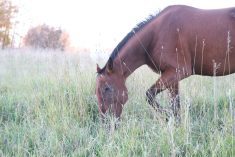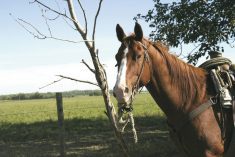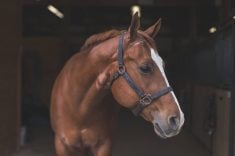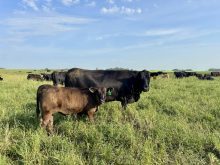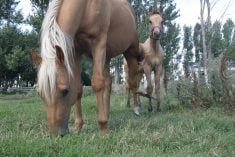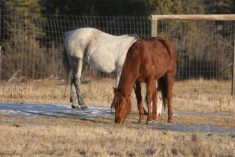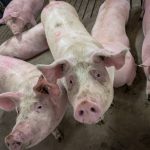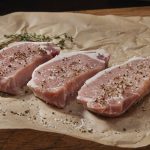Late winter and early spring mark an interesting conundrum on the equine calendar. Prolonged winter weather conditions, declining nutritional values in feed, and lack of movement within confining snow boundaries and winter paddocks challenge the health of even the hardiest of horses. So it is not uncommon that particular illnesses occur and are aggravated as winter advances.
Dentally challenged horses will generally show their struggle during this time of the year as sudden ‘unexplained’ weight loss and ill-thrift. They are unable to maintain their body condition as winter progresses due to ineffective chewing of dry-stem forages.
Read Also
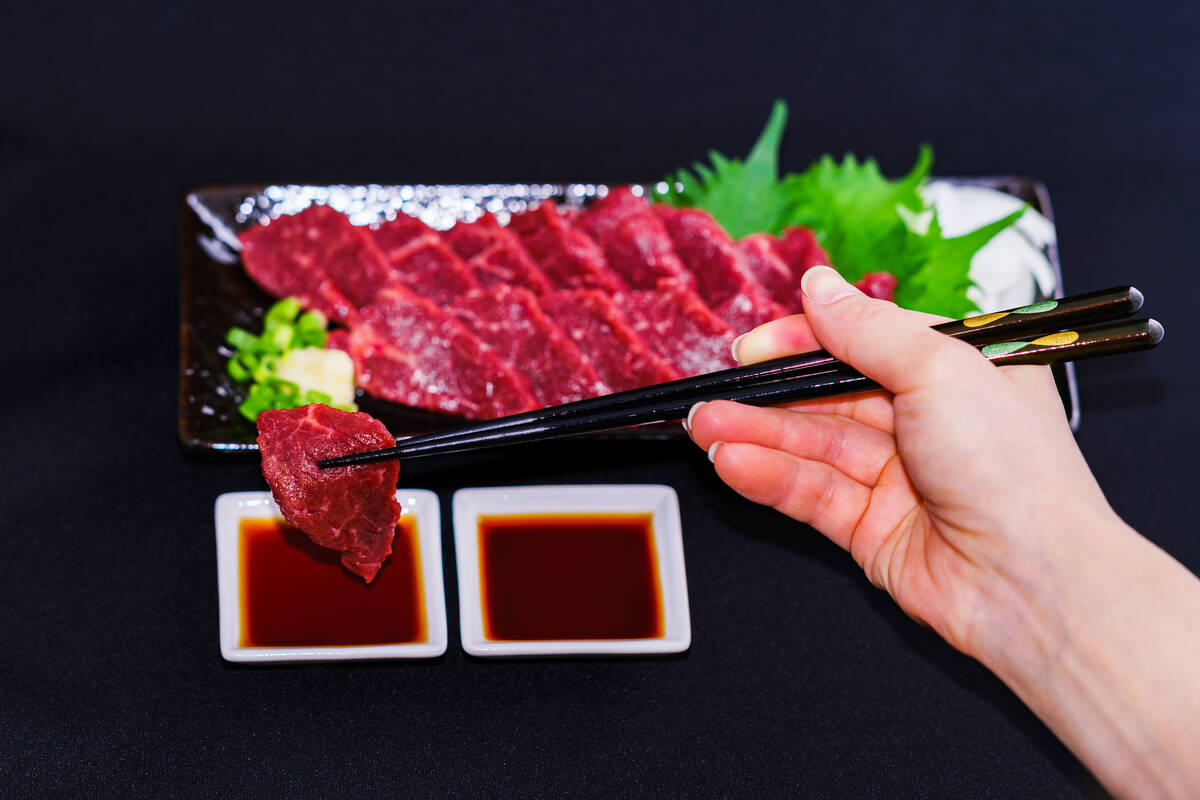
Horse live export ban on back burner
Animal welfare groups still hope Canada’s Parliament will ban the export of live horses for slaughter, a topic back in the news due to a recent court case in Manitoba.
Younger horses between the ages of two and four and the elderly horses are particularly afflicted. When youngsters are teething, newly shed baby teeth give way to erupting adult teeth. As a result it may be months before adult teeth come into full occlusion and during this time young horses lose grinding efficiency. This is most noticeable in three-year-olds who present with weight loss and lack of lustre as spring arrives. Fortunately body condition improves dramatically as the adult teeth come into full wear.
Aged horses who repeatedly have difficulty maintaining body weight during late winter often have a dental challenge. It is of benefit to have the teeth of these horses thoroughly examined. Dental intervention and special dietary management may be necessary to support their health.
Supervision of a horse’s body condition is of utmost importance as winter progresses. A body condition score of five is generally ideal. At this body condition the ribs are felt, body fleshing is moderate and the back is level. Straying too far from this ideal is cause for concern. Too fat is equally disruptive as is too thin to the horse’s health.
Reasonable weight loss is never too troubling in horses during the winter. It is in fact part of a horse’s natural cycle to lose weight over the winter. Horses that continually oppose seasonal flux in body weight, steadily carrying more weight over the years, become prone to endocrine and metabolic illnesses.
Winter can be the opportune moment to effectively reduce the extra weight a horse may be carrying. Feeding a horse 1.5 per cent of its ideal body weight in hay or allowing them to paw on well-stocked winter pastures are two available options. Combination of these two options will also produce favourable results.
Moderate body condition benefits all horses, especially those with arthritis more so. Weight carried beyond which is healthy taxes inflamed joints. Reduced movement, frozen terrain, and reduced intake of green grasses amplify the discomfort of arthritic horses during winter. Encouraging moderate exercise, supervision of weight, and addition of flaxseed to their diet brings welcome relief. Flaxseed is rich in omega-3 essential fatty acids, a natural anti-inflammatory. The only other source of omega-3 essential fatty acids in a horse’s diet is green grass.
Greater attention to your horse’s health at this time of the year is extremely important and may determine your horse’s lustre and attitude come spring.





